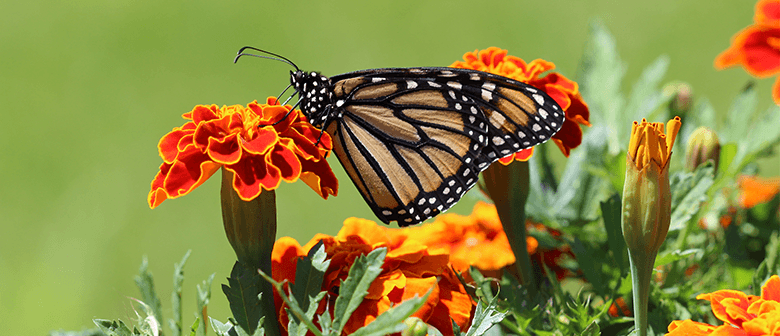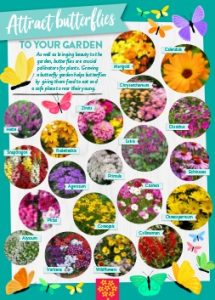How to Create a Butterfly Garden
Create a butterfly garden in your own backyard! Butterflies are some of the most beautiful insects on the planet. As well as bringing beauty to the garden, butterflies are crucial pollinators for plants; the swan plant is an example of one.
Growing a butterfly garden helps butterflies by giving them food to eat and a safe place to rear their young.
Did you know that butterflies can see the colour red? That’s why many butterflies prefer flowers that are warm hues like bright red, orange and yellow.
What to Plant
The easiest way to attract native butterflies to your garden is to plant a variety of food plants for caterpillars and nectar plants for butterflies.
It is best to place larval plants in clumps of at least three or four. Otherwise, hungry caterpillars may quickly eat all the leaves from one plant and end up stranded on an island of bare twigs!
Legumes such as sweet pea, peas, broad bean and lupin are ideal for blue butterfly caterpillars. Pohuehue, is a hardy, twining or climbing native plant with rounded leaves and small, white flowers, this is where you will find common copper caterpillars. Pohuehue grows best in full sun or semi-shade and grows well in dry, rocky areas and inclines.
Nectar Plants for Butterflies
Calendula
Grows well in full sun as well as partial shade. Plant in early spring.
Echinacea
Plant Echinacea plants in spring or autumn, in well-drained soil in full to part sun.
Chrysanthemum
Plant in well drained soil in a spot with at least 5-6 hours sun daily.
Cosmos
Plant in full sun and give them protection from strong winds.
Dianthus
Plant anywhere they will receive at least 6 hours of sun. They prefer well-drained alkaline soil.
Wildflowers
Wildflower seeds will germinate and grow when soil and air conditions are warm.
Salvia
Plant in rich and well-draining soil in full sun to light shade.
Hebe
Hebes can be grown in both sun and shade though full sun is preferable.










